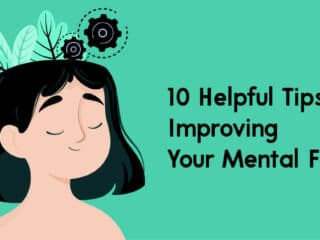Serotonin plays a large role in regulating mood, which leads to many people searching for natural serotonin boosters. Despite what many health blogs say, though, naturally boosting serotonin levels isn’t as simple as eating a few superfoods.
What is serotonin?
Serotonin is a neurotransmitter that is popularly associated with mood. It does far more than help regulate mood, however; this mighty chemical is also involved in processes like:
- Bladder control
- Bowel movements
- Cardiovascular function
Fun fact: Most of the body’s serotonin isn’t found in the brain. In fact, the largest concentration (90%!) of the body’s serotonin is in the gastrointestinal (GI) tract. So, it’s no wonder that serotonin is thought to play a key role in several GI functions.
Clearly, serotonin is pretty important. That means that having reduced levels of this neurotransmitter can result in some unpleasant and even downright dangerous symptoms, such as:
- Alcohol abuse
- Anxiety
- Depression
- Eating disorders
- Fibromyalgia
- Insomnia
- Irritable bowel syndrome (IBS)
- Obesity
What are some ways to boost serotonin levels?
Prescription antidepressants like SSRIs (selective serotonin reuptake inhibitors) and SNRIs (serotonin-norepinephrine reuptake inhibitors) are popular for a reason: they help a lot of people stabilize their mood thanks to their serotonin-boosting effects.
Fortunately, there are also plenty of ways to supplement these medications, too. Just know that natural serotonin boosters won’t always work and they cannot effectively replace professional medical help.
1. Exercise
Regular exercise can provide all sorts of wonderful health benefits, including increasing serotonin levels. The reason? Many experts believe that exercise makes tryptophan more readily accessible in the brain, which in turn may increase serotonin synthesis since the body needs tryptophan to make serotonin.
The best form of exercise for boosting mood? According to some research, aerobic activity. This activity may take the form of swimming, walking, jogging, running, cycling, and more.
2. Use light therapy
Research from the Children’s Hospital Oakland Research Institute suggests that vitamin D is necessary for converting tryptophan to serotonin. So, it’s no wonder that a vitamin D deficiency is strongly linked to a drop in mood. That means research suggests that one of the most natural ways to boost serotonin levels is to soak in some sun to get that vitamin D.
If you’re in a place where natural sunlight isn’t possible, a sunlamp may help. One study suggests that 30 minutes of exposure to broad-spectrum fluorescent white light (10,000 lux) is effective in elevating serotonin levels. Specifically, this study found that light therapy increased binding of serotonin transmitters, a process that effectively leaves greater amount of serotonin in the brain.
3. Try tryptophanâwith a catch
Maybe there’s some truth to the old saying that “you are what you eat.” A healthy diet can obviously boost your overall health⦠but how exactly does diet affect your mood?
In order to answer this question, we need to have a quick chemistry lesson. The body needs certain ingredients to create serotonin. Most importantly for serotonin synthesis (creation) is tryptophan, which is the precursor to serotonin. In other words, the body uses a metabolic process to effectively convert tryptophan into serotonin.
Now, tryptophan is an essential amino acid, which means the body does not produce it. That means we need to get all the tryptophan we need from our diets. Despite what plenty of blogs will tell you, though, loading up on the turkey is not the best way to use tryptophan to boost serotonin levels.
Why?
Because in order for the brain to convert tryptophan into serotonin, tryptophan must first cross the blood-brain barrier (BBB). The BBB’s primary purpose is to protect the brain from toxins while still allowing nutrients in. Loading up on protein-dense foodsâlike turkeyâintroduces lots of amino acids into your system. Tryptophan will have to compete with these other amino acids to cross the BBB. So, eating too much protein with higher concentrations of other amino acids may actually reduce your ability to properly convert tryptophan into serotonin.
4. Eat a low-protein, high-carb meal
Carbohydrates, however, may help tryptophan cross the BBB, according to some research. That’s why some believe that a low-protein, high-carbohydrate meal may help tryptophan cross the BBB, thereby boosting serotonin in the brain.
Use carbs to your advantage
That doesn’t mean to load up on unhealthy carbs, though. Firstly, the Institute of Medicine’s recommended carb intake is somewhere between 45% to 65% percent of your total daily calories. Secondly, not all carbs are created equal.
Sources of healthy carbohydrates include:
- Sweet potatoes
- Quinoa
- Legumes
- Whole grains
- Apples
- Bananas
All in all, current research says it’s best to replace unhealthy carbs with healthier ones and to cut back on excessive amounts of protein. So, basically what we knew all along: eat a balanced diet packed with a variety of healthy foods.
5. Go bananas for these healthy foods
Bananas are a source of healthy carbohydrates (27 total grams per serving). Many also say they are almost magical natural serotonin boosters because they’re packed with this neurotransmitter. However, the serotonin in bananas doesn’t cross the BBB. Bananas may still indirectly help your body synthesize the serotonin, though.
How?
Its high vitamin B6 content. You see, vitamin B6 (pyridoxine) is heavily involved in the creation of serotonin, so there’s reason to believe that eating bananas may offer a slight, indirect increase in this mood-boosting neurotransmitter. It’s important to note, though, that eating a single banana a day won’t magically cure depression or lift moods. Why? Because a single banana does not have all the vitamin B6 you need to meet the body’s daily B6 requirements.
Instead, bananas work best when they are part of an overall healthy diet filled with all the nutrients your body needs. If you aren’t getting enough vitamin B6 in your diet, you can check out these other non-banana foods to enjoy:
- Eggs
- Salmon
- Brown rice
- Oatmeal
- Tuna
- Carrots
- Jackfruit
Signs of potential vitamin B6 deficiency include, but are not limited to, the following:
- Anemia (microcytic anemia, specifically)
- Scaly lips
- Depression
- Cracking corners of the mouth
- Swollen tongue
- Confusion
- Weakened immune system
Getting professional help
Sometimes it’s necessary to get professional help to properly manage mental health conditions. If that’s the case, it’s important to remember that there’s no shame in seeking help, just as there’s nothing wrong with taking insulin for diabetes or getting a cast if you have a broken arm.
Emergency help
If you or a loved one is experiencing a mental health crisis, you may call the National Suicide Prevention Lifeline at 1-800-273-8255. It is available 24/7 and free of charge. You may also chat with someone by clicking here.
Non-emergency help
For non-emergency help, you may call the Substance Abuse and Mental Health Services Administration’s National Helpline at 1-800-662-HELP (4357). This service is available in both English and Spanish and offers helpful information and referrals to those seeking help with substance abuse or mental health disorders. This service is free and available 24/7.
Find affordable counseling near you
To find a low-cost counseling service in your area, you can visit Open Counseling’s website.
Warning
Too much of a good thing can be bad, and it’s the same case with serotonin. Having too much serotonin in the system can flood the central nervous system, leading to a rare but potentially life-threatening condition known as serotonin syndrome.
Symptoms of serotonin syndrome include:
- Agitation
- Confusion
- Diarrhea
- Dilated (widened) pupils
- Goose bumps (cutis anserina, horripilation)
- High blood pressure (hypertension)
- Intense sweating
- Muscle incoordination
- Rapid heart rate
- Restlessness
- Rigid muscles
- Shivering
- Twitching muscles
Severe symptoms include:
- High fever (typically considered to be 103° F/39.4° C in adults)
- Irregular heartbeat
- Loss of consciousness
- Seizures
Anyone who believes they may be experiencing serotonin syndrome should seek medical attention right away.
Final Thoughts
When it comes to boosting serotonin levels, no one technique will work best for every single person. For those who are looking to increase their levels of this “happy chemical,” these natural methods may help. That being said, these natural serotonin boosters cannot replace professional help.
It’s important to seek professional help to fully round out a holistic physical and mental health management plan. Never make dietary or exercise changes without first consulting a licensed professional.










